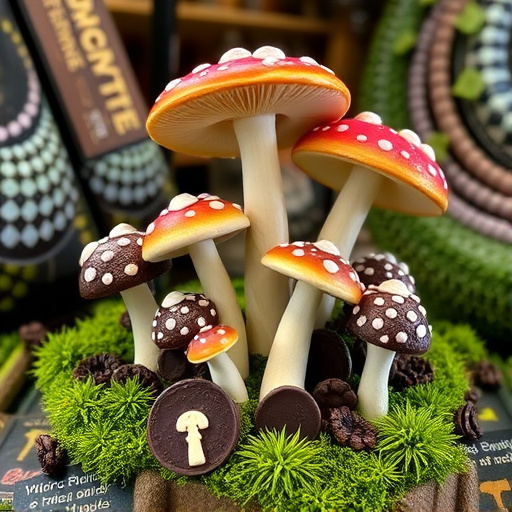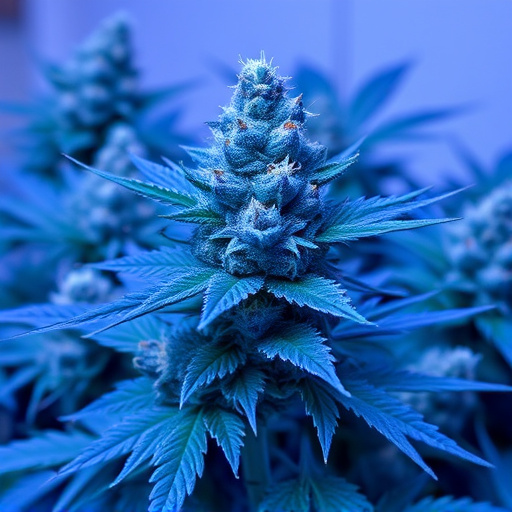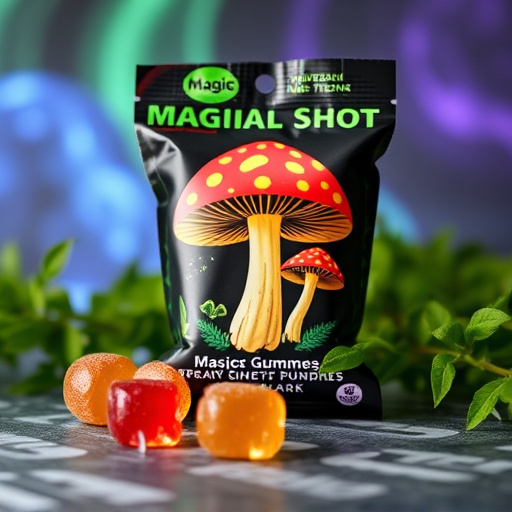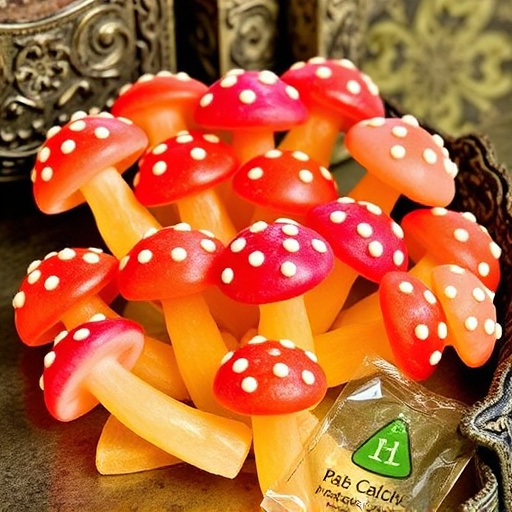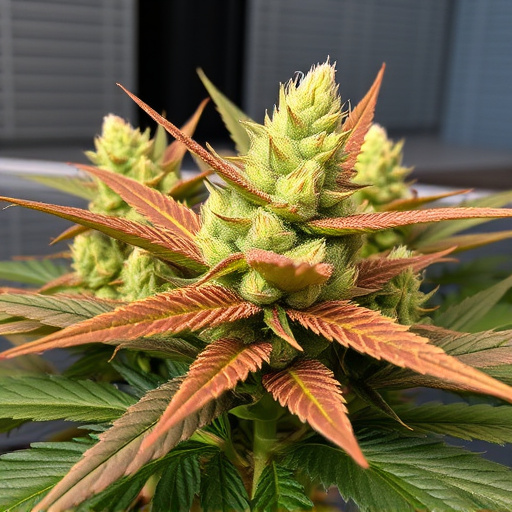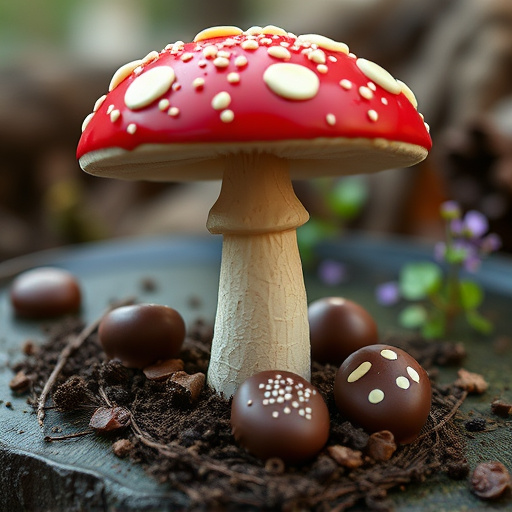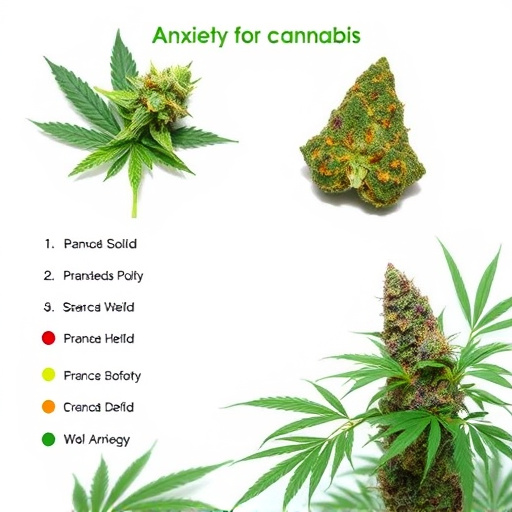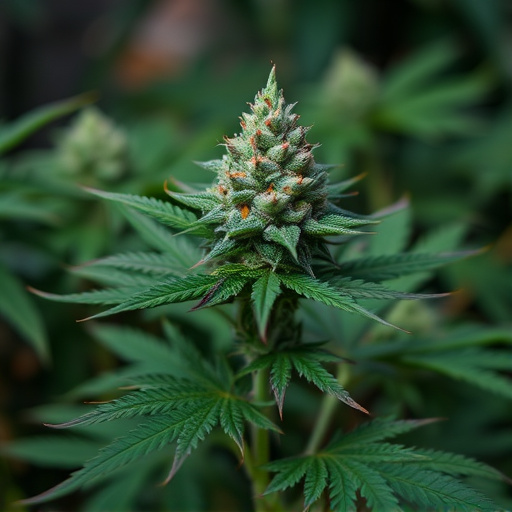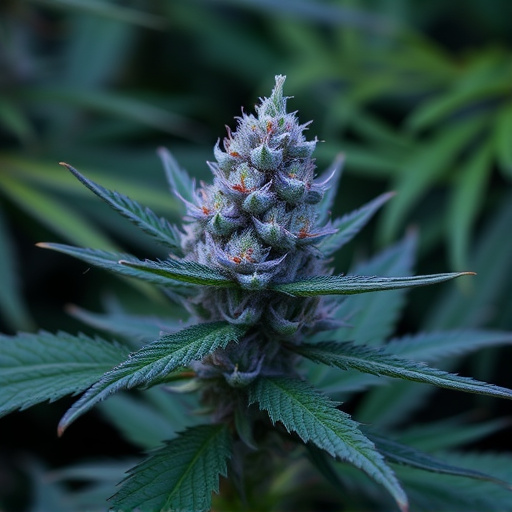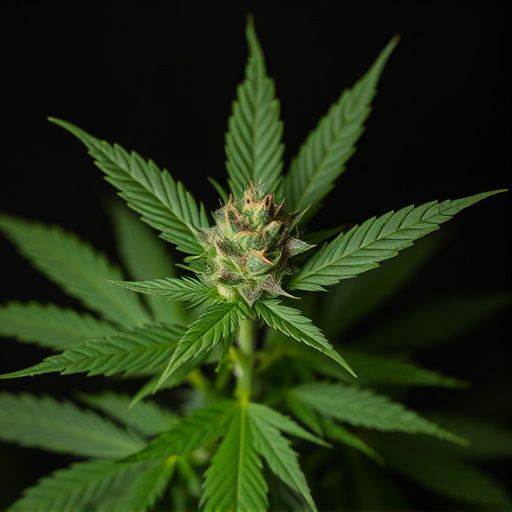Cannabis flowers contain cannabinoids like THC and CBD that interact with our bodies' endocannabinoid system (ECS) to regulate mood, appetite, memory, and pain perception. While THC can induce euphoria but heightened anxiety, CBD has gained attention for its potential anxiolytic effects, interacting with the ECS to manage anxiety and promote calmness without mind-altering effects. Different cannabis strains, each with unique cannabinoid profiles, cater to diverse user needs, especially those seeking relief from anxiety or stress. For anxiety relief, prioritizing strains with higher CBD content and lower THC levels is recommended, backed by scientific evidence. Personalized medicine in cannabis therapy considers individual genetic predispositions and symptoms for tailored treatment plans using appropriate cannabis strains.
Cannabis has long been known for its potential to alter moods and emotions, but understanding how it works involves delving into the complex interplay of its compounds—especially cannabinoids like THC and CBD. This article explores how these compounds affect mood, with a specific focus on cannabis strains renowned for their anxiety-relieving properties. We also discuss individual variations in response, highlighting the growing trend of personalized cannabis medicine tailored to unique needs.
- Understanding Cannabis Compounds and Their Effects on Mood
- Cannabis Strains for Anxiety Relief: Science Behind the Choices
- Individual Differences and Personalized Medicine in Cannabis Therapy
Understanding Cannabis Compounds and Their Effects on Mood
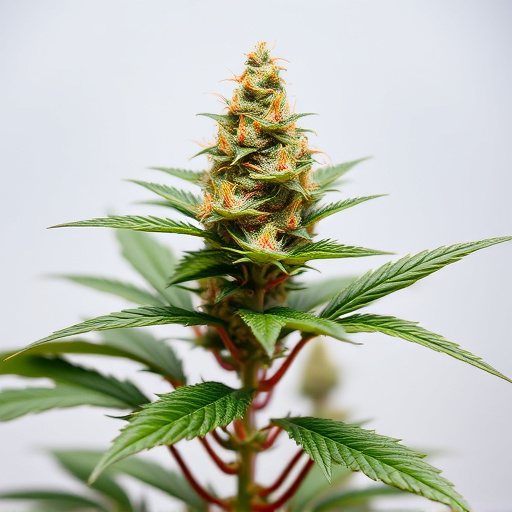
Cannabis flowers contain a complex mix of chemical compounds, most notably cannabinoids like THC and CBD. These compounds interact with our bodies’ endocannabinoid system (ECS), which plays a significant role in regulating mood, appetite, memory, and pain perception. When cannabis is consumed, these cannabinoids bind to receptors in the brain, leading to various effects on emotions and mood.
While THC is known for its psychoactive properties and can induce feelings of euphoria, it’s also linked to heightened anxiety in some individuals, especially when consumed in high doses or by inexperienced users. In contrast, CBD, a non-psychoactive compound, has gained attention for its potential anxiolytic (anxiety-reducing) effects. Research suggests that CBD interacts with the ECS and other receptors involved in mood regulation, making it a promising option for managing anxiety and promoting calmness without the mind-altering effects of THC. Different cannabis strains, each with unique cannabinoid profiles, cater to diverse user needs, especially those seeking relief from anxiety or stress.
Cannabis Strains for Anxiety Relief: Science Behind the Choices
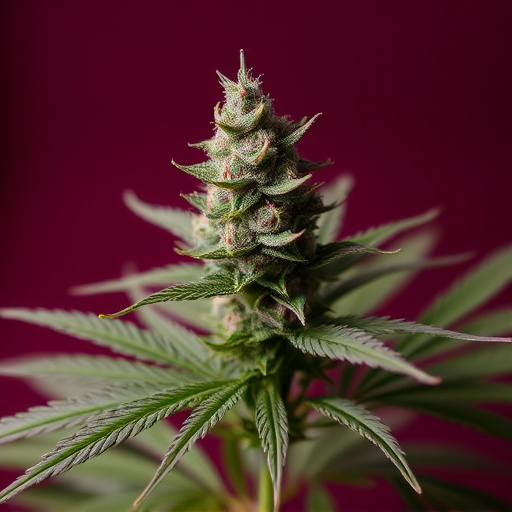
Cannabis has been used for centuries to manage various medical conditions, and its potential benefits for anxiety relief have gained significant scientific interest. While cannabis is known for its psychoactive effects, different strains offer unique profiles that can target specific symptoms of anxiety. The science behind selecting the right cannabis strains for anxiety lies in understanding their chemical composition, particularly cannabinoids like THC (tetrahydrocannabinol) and CBD (cannabidiol).
Research suggests that certain cannabis strains with higher CBD content may be beneficial for managing anxiety. CBD is non-psychoactive, meaning it doesn’t produce the “high” associated with marijuana. Instead, it interacts with the body’s endocannabinoid system, which plays a role in regulating mood and reducing stress responses. Strains with lower THC levels are often preferred for their potential to induce relaxation without causing anxiety or paranoia, commonly associated with higher THC concentrations. Therefore, when choosing cannabis strains for anxiety relief, considering the cannabinoid ratio, especially favoring CBD over THC, is a strategic approach backed by emerging scientific evidence.
Individual Differences and Personalized Medicine in Cannabis Therapy
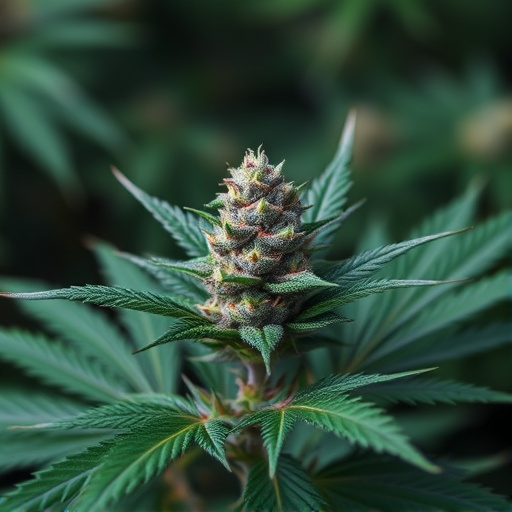
Cannabis therapy, especially using cannabis strains for anxiety, is becoming increasingly personalized as we understand individual differences in response to the plant’s active compounds. What works for one person might not have the same effect on another, largely due to genetic predispositions and varying endocannabinoid system activity. This complexity highlights the importance of tailored treatment plans.
Personalized medicine approaches consider factors like an individual’s medical history, genetics, and specific symptoms. For instance, some cannabis strains known for their relaxing properties might be beneficial for those with anxiety, while others with more energizing effects could aid in managing depression. Such precision ensures that patients receive the most suitable treatment, enhancing potential therapeutic benefits and minimizing any adverse effects.
Cannabis’ impact on mood and emotions is a complex interplay between various compounds, with THC and CBD being key players. Understanding these effects allows for the selection of specific cannabis strains for anxiety relief, catering to individual needs through personalized medicine. Research continues to uncover the potential benefits, emphasizing the importance of further exploration in this field. By considering both scientific evidence and personal experiences, individuals can navigate the diverse world of cannabis strains for anxiety in a more informed and effective manner.
